The Opening Ceremony for the Tokyo Olympics Will Be On July 23
As a passionate Olympics fan, the Opening Ceremony of each Games is such a special moment for me, a celebration of the excitement to come over the next two weeks. I remember the first wonder watching Los Angeles 1984 ceremony, and the thrill of seeing the (sporting, at least) world come together at each subsequent edition. Watching the pageantry of each ceremony unfold is a special treat. How will the host present themselves? What will be the signature visual (or sound)? What will athletes wear? Who will light the torch? How will Japan address the pandemic? Let's go!
Read on to get prepped for the Tokyo 2020 Opening Ceremony on July 23rd.
The Opening Ceremony of the Games of the XXXII Olympiad (aka the The 2020 Summer Olympics)
When?
8 p.m. JST = 4 a.m. PST = 7 a.m. EST. The ceremony is scheduled for three hours.
Why?
Although the Games will have already begun - archery, football (soccer), and softball will have had some competition already - the ceremony is the traditional celebration that officially starts each Olympics. It's a spectacle.
How to Watch?
NBC will broadcast the ceremony live, and on primetime delay in the U.S.. Check the schedule.
What to Expect?
The ceremony has a traditional set of multiple elements. Settle in, it can be a long night (or morning if watching from the U.S.). The usual components include:
- Artistic Program: the host nation and city opens usually with a theatric and colorful presentation of its heritage to showcase to the world, and a celebration of the Games. Will Japan's video game hero Super Mario make an Olympic return?
- Parade of Nations: Each National Olympic Committee (NOC) contingent enters the stadium alphabetically (by the host nation's language). Exceptions, though are Greece entering first as the historical origin of the Games, followed by the Refugee Olympic Team. Japan, as host nation, will appear last, and the next two hosts France (Paris 2024) and the United States (Los Angeles 2028) may see special placement, too. With 205 NOCs expected to compete at the Games, this should be the longest portion of the ceremony. The U.S. typically has the largest number of athletes. Being a flag bearer for your nation is usually a significant honor.
- The opening of the Games: Formality continues with speeches from (usually) the head of the local Olympic Organizing Committee and the President of the International Olympic Committee (IOC). Athlete and technical official representatives take an oath for fair competition and judging, and a representative of the host nation (typically the head of state) proclaims the Games open.
- Olympic Flag: Traditionally, a select group of host nation's premier and/or legendary athletes bring in the official Olympic flag for the official raising in the stadium.
- Olympic Flame: the arrival of the official flame into the stadium after its extended relay from Athens is a highlight. Always, there is much speculation and secrecy as to who will be the final torchbearer(s), again usually a premier Olympic athlete from the host nation. Also a last-minute reveal is the manner in which the stadium's official cauldron is lit.
Due to the Covid-19 pandemic and the continued state of safety restrictions in Japan, this ceremony will for sure be different. At best, a max 10,000 (domestic only) spectators can be in attendance at the Opening Ceremony, a fraction of what the stadium can hold. Goodbye, mass audience participation stunts?
Will there be a recognition of the pandemic in official remarks?
Also, athletes have been asked to restrict their presence at the Olympic Village, so it's assumed far fewer of them will even be in Tokyo on the 23rd, especially if their competition isn't until the following week. So, the Parade of Nations will obviously take a hit in attendance, too.
One innovation offered this year is the opportunity for joint flag bearers for each NOC, to support the IOC's gender-balanced mission. Expect many nations to do so.
- London 1908 had the first "athletes' parade".
- An Olympic Hymn was performed at Athens 1896, but not again until the Winter Games of 1960.
- From Antwerp 1920, live doves were released as part of the ceremony to symbolize peace. But Seoul 1988 saw doves burned by the cauldron, so subsequent Games have opted for digital or firework representations of doves.
- While Antwerp 1920 also saw the first Olympic Oath for athletes, Munich 1972 had the first actual athlete recite it. Sapporo 1972 instituted the officials'.
- Antwerp 1920 also debuted the Olympic Flag.
- Berlin 1936 organized the first torch relay from Athens.
- The first modern Olympic flame was introduced at Amsterdam 1928, as was the Parade of Nations with Greece first.
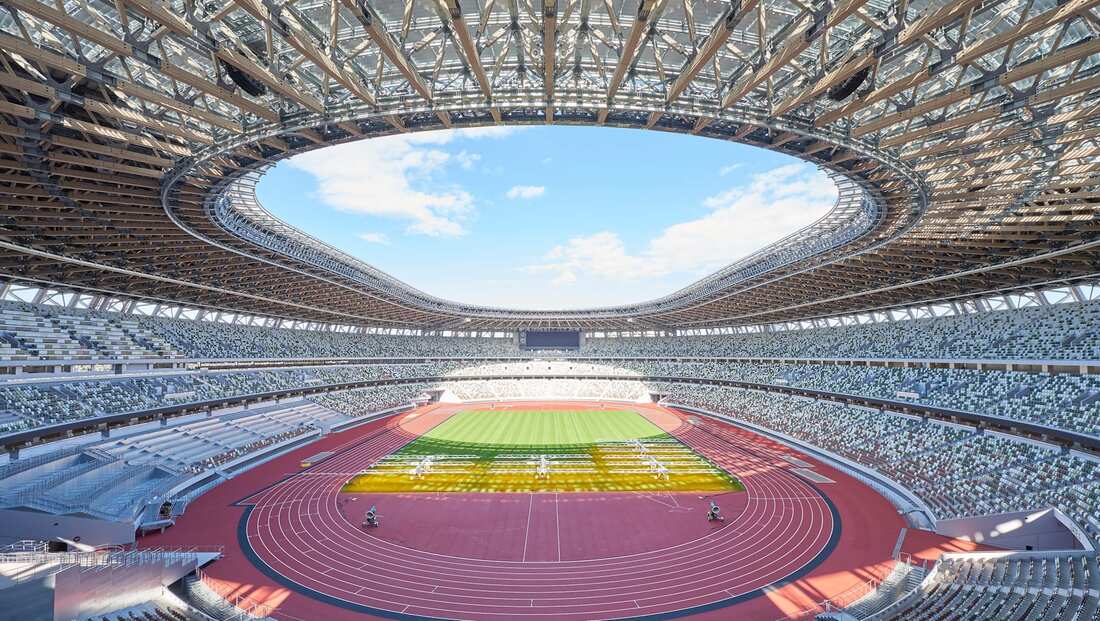
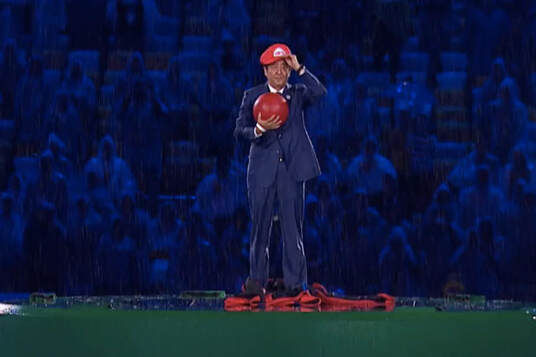
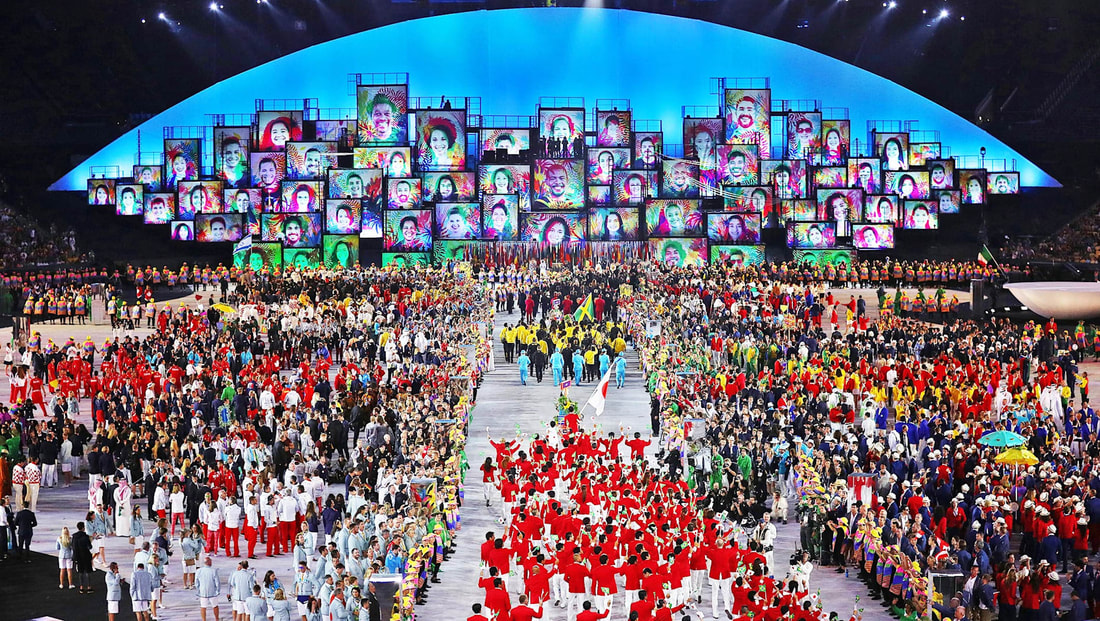
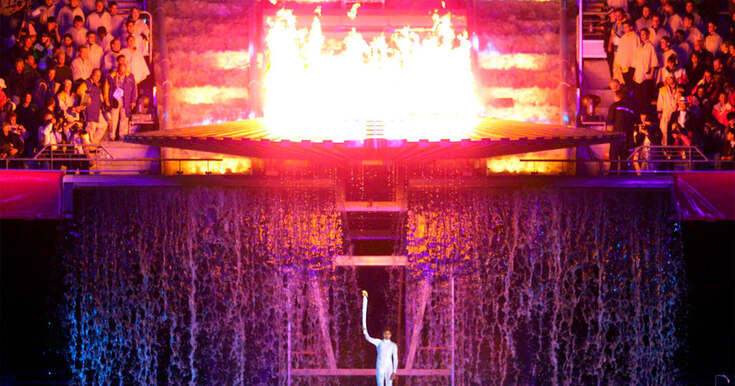
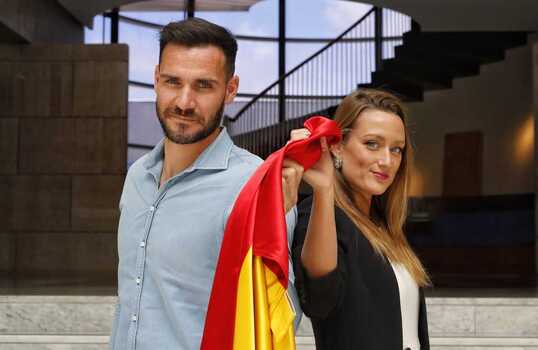
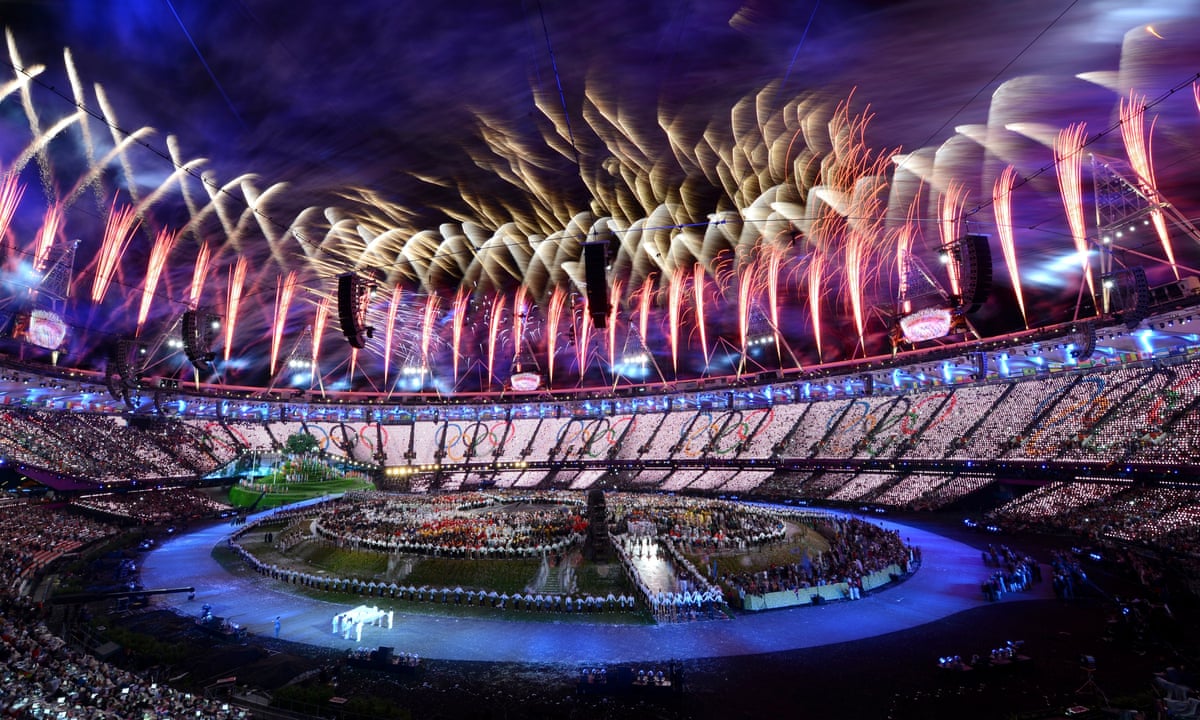

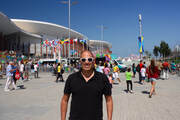
 RSS Feed
RSS Feed